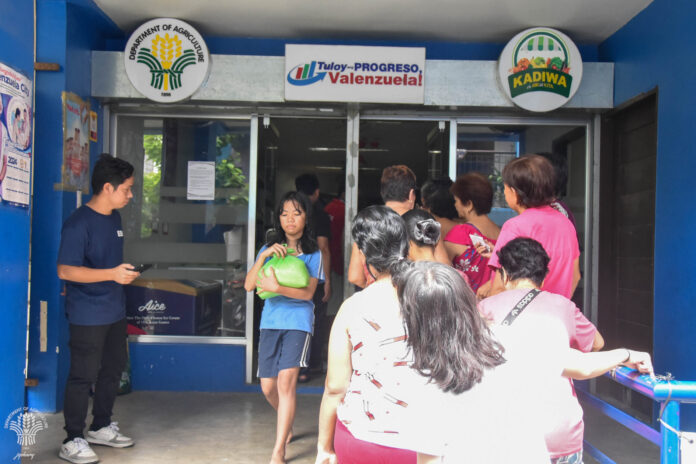Lower rice prices and easing costs of meat, poultry, and fruits—tempered by interventions of the Department of Agriculture as directed by President Ferdinand Marcos Jr.–continued to shield the country’s most vulnerable households from the full impact of rising consumer prices in August, even as headline inflation picked up pace.
The Philippine Statistics Authority on Friday reported that headline inflation rose to 1.5 percent in August from 0.9 percent in July, driven primarily by higher food prices—especially vegetables and fish—amid supply bottlenecks caused by a series of storms and widespread flooding. The acceleration breaks a four-month stretch of slowing inflation, though it remains well below the 3.3 percent recorded in August last year.
For the bottom 30 percent of income households, however, inflation remained in negative territory at -0.6 percent, extending a deflationary trend that began in June.
The decline is largely due to sharply lower rice prices following the Department of Agriculture’s (DA) implementation of maximum suggested retail prices (SRPs) in January. The MSRP was lowered to P43 per kilo on July 16.
Rice prices were down 19.3 percent in August year-on-year, after falling 17.8 percent in July. For poor households, this is especially impactful: rice accounts for 18 percent of their consumption basket—twice the share it holds for the average Filipino.
Agriculture Secretary Francisco Tiu Laurel Jr. said the DA is stepping up efforts to stabilize prices of other essential food items—including pork, chicken, fish, and vegetables—as bad weather continues to strain domestic supply chains.
“We’ve approved fish importation to supplement supply in the coming closed fishing season, and the Food and Drug Administration has cleared the commercial use of bird flu vaccines to help boost poultry output ahead of the holidays,” he said.
Tiu Laurel added that the DA is closely monitoring supply conditions across key commodities in line with the directive of President Ferdinand Marcos Jr. to keep food affordable, especially for low-income families.
“We want to make sure that food prices remain stable and accessible, especially for the poor,” he said.
To further reinforce this goal, the DA is ramping up the rollout of President Marcos’ flagship food subsidy program, “Benteng Bigas, Meron Na!”, which offers rice at P20 per kilo to qualified sectors. The program was formally launched in Bohol on Friday, with tricycle and jeepney drivers set to be included as beneficiaries starting September 16.
They will join rice farmers, fisherfolk, minimum wage earners, senior citizens, solo parents, persons with disabilities, and indigent families already covered under the program. Tiu Laurel said more sectors will soon be included, including financially strapped staff of the Department of Education and non-rice farmers.







